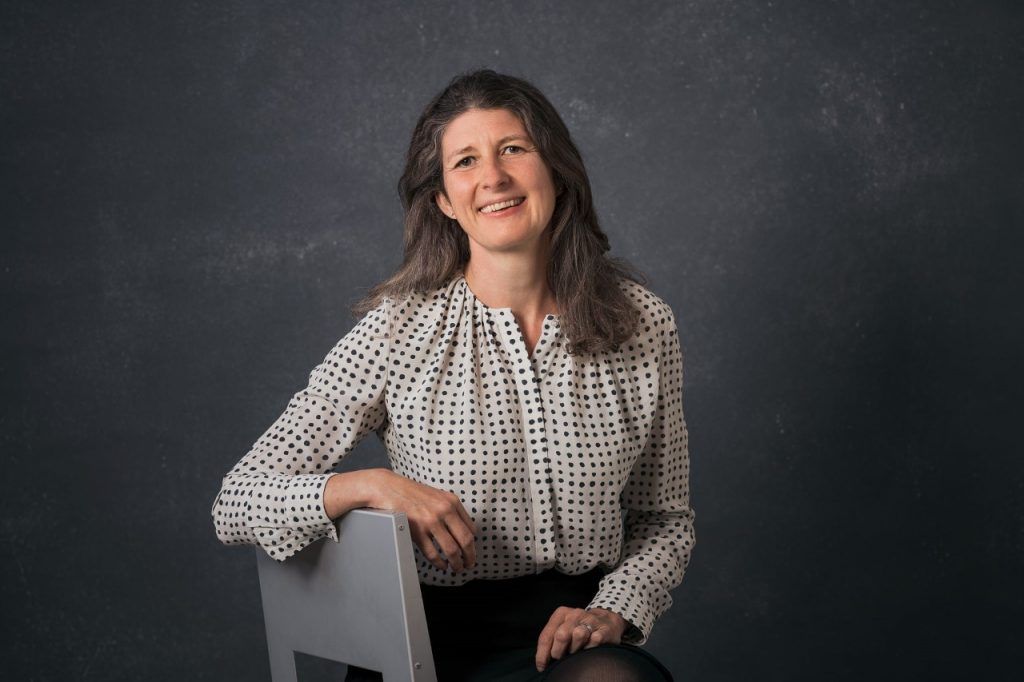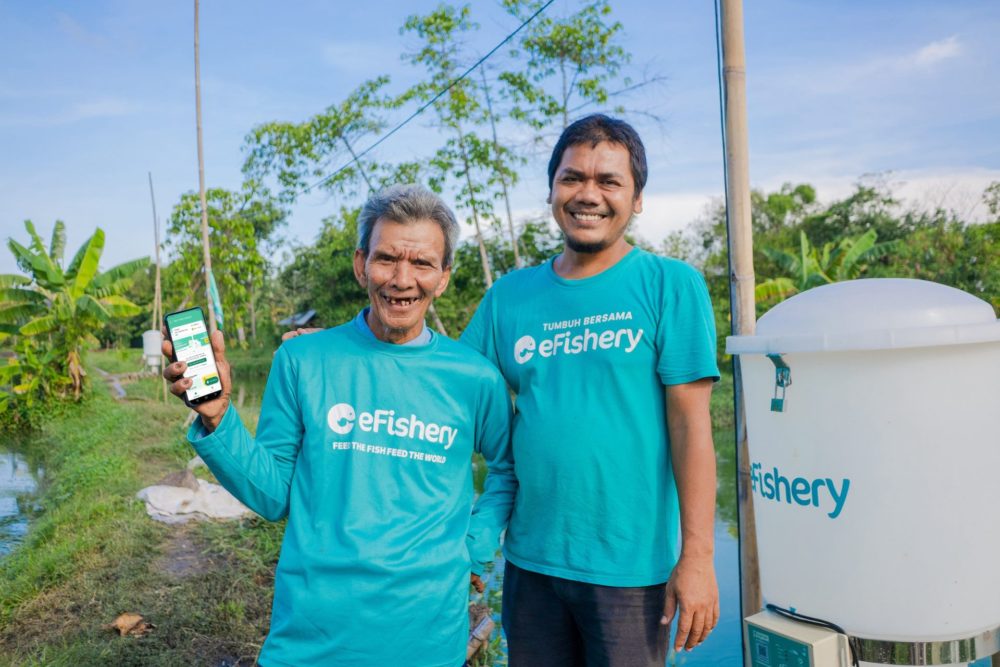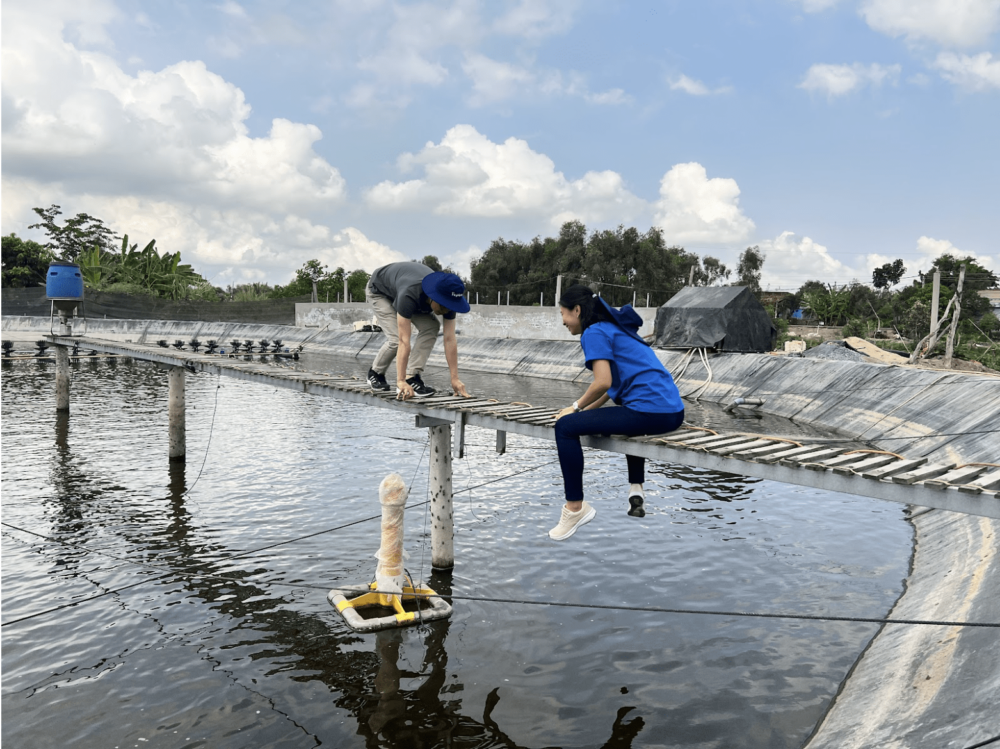Healthy oceans are critical to a healthy planet. But as the United Nations notes, the ocean is in a state of emergency thanks to pollution, overfishing, eutrophication and warming.
UN targets for Sustainable Development Goal 14 focus on pollution reduction, conservation and regulating the fishing industries — all areas in which agrifoodtech startups can play a vital role.
Several such companies exist in the portfolio of Aqua-Spark, a Netherlands-based investment fund that focuses on aquaculture systems around the world.
Indonesian aquaculture startup eFishery, for example, provides a digital system for managing fish and shrimp farming operations. The company recently bagged $200 million. Vietnam’s Tepbac is another such digital platform for shrimp farming. [Disclosure: AFN’s parent company AgFunder is an investor in Tepbac.]
Outside of fish farming, Aqua-Spark has invested in insect protein startup Protix, cultivated seafood company Shiok Meats, and many others working in various parts of the food system.
“Aqua-Spark was originally founded based on the premises that aquaculture is a real solution to restoring ocean health,” CEO Lissy Smit recently told AgFunderNews. “We really think you can only do that when you truly invest across the whole value chain.”
Smit (LS), whose career has largely been focused on food and agribusiness finance, including time at Rabobank, joined Aqua-Spark last year. She recently caught up with AFN to discuss the firm’s portfolio as well as how it’s addressing some of the greatest challenges right now for ocean and marine life.

AFN: What big challenges in ocean health are Aqua-Spark portfolio companies tackling right now?
LS: There are several. A lot of focus this year is on alternative feed ingredients. A lot of the production in aquaculture is still using wild-caught fish. So finding alternatives to feed fish meal is a big thing for us. We also like it because it’s highly scalable. We look at solutions that need capital to be scaled, and we have several investments in that area.
We have Protix, which is Black Solider Fly. We have Calysta. We just recently invested in eniferBio, which uses bacteria to make fungus fermentation that can be used to replace soy.
Another focus is around the digitalization — the platforms which also allow traceability. When you look at products like shrimp, production at smaller levels is very fragmented. Finding ways to connect these smallholders but also getting the data to allow traceability is a big topic right now.
We also want to raise a lot more awareness for consumers and get retailers to buy into this. We know where our beef comes from and where chickens come from, but fish is very difficult to trace. Allowing [more] traceability is something we really focus on us as an investment proposition.
Obviously there’s eFishery. When we first invested it was really about smallholder farms getting the hardware in their ponds to make sure that, for example, they used less feed because they knew exactly when to feed the fish.
But then, because they used this digital platform for it, all of a sudden there was also a lot of data that could then be used for a lot of different purposes, including getting financing and creating this whole platform of which also empowered the smallholder.
This is very powerful proposition and also really solves the traceability issue. Now you can go to the retailer and say, ‘We have all the data, we can show you exactly where the shrimp comes from,’ which for a farmer that’s a big thing.
Now we have expertise working with farmers in Ecuador to calculate CO2 on farms, which, again, can be aggregated and shared with with end consumers.
We also see real upside in scalability. We invest directly into production to really show what is possible, like freshwater farming in Iceland and also in Africa.
We’re working with farms to make sure we come up with a sustainable solution for local production. And we have our seaweed investments, which tackle several problems at the same time.

AFN: What do you look for in potential investments?
LS: We tend to look at different spaces and really make sure companies get to production. With feed ingredients, for example, if you don’t get scale, then feed producers are not going to use it as an ingredient and it’s not going to come to the market. So it’s really looking where can we add most value with our capital, because in the end, we’re an investment firm. That’s where we hope to contribute to.
AFN: In which regions does Aqua-Spark focus right now?
LS: It’s quite evenly distributed between Africa, Asia, Europe. Having said that, eFishery in terms of value has been a positive thing, and we see a lot more opportunities in Southeast Asia. Fish is the most prevalent protein there. There’s more per capita production and so it’s a very natural region for us to invest in.
The other region is Africa and we’re actually launching a Africa fund and coursework dedicated to Africa continents. Our main fund will still be global, including Africa, but the investments will be separate is because it’s a slightly different investment base, slightly different proposition.
AFN: What are the biggest challenges for smallholders in aquaculture?
LS: It depends on the country. If you read the story around eFishery, those smallholder farmers were very dependent on not just one middle man but multiple layers. But because they [joined] eFishery, they can directly acquire inputs. That takes out the middleman and that really saves on costs.
[The eFishery platform] recently started making sure there wasn’t too much feed used, because that creates environmental issues and also results in lower cost base.
In Vietnam, we have Tepbac, and we’re really looking at platform companies that we can find and provide these type of services to, creating a food chain that is smaller, more transparent and shorter.
AFN: What’s the investor perspective on the current fundraising environment?
LS: On the primary food side, there are still a lot of investment demands. In the end, everyone needs to eat.
We have quite a strong investment base with a lot of family offices with a long-term mindset. At the same time, with our investment companies, obviously we’re not the only investors and we usually take large minority stakes, but not majority.
So we have co-investors and we do see that for some of our companies it is more difficult to raise (capital) and that there are situations where we sometimes need to step up a bit more compared to co-investors because there is simply less appetite.
AFN: What about the meat alternatives space?
LS: Very deliberately, part of our portfolio is also dedicated to alternative protein and cultivated meat, plant-based meat.
As a fund, we [focus on] the ocean health side and also anything that helps deliver healthy protein and relieves ocean pressure. So it’s definitely part of our investment thesis still.
However, it won’t grow to 50% of our portfolio. It’s a small part we believe should develop alongside [other solutions], especially on the longer horizon.

AFN: Does agrifoodtech capital need to be more patient?
LS: Yes and no. With alternative ingredients, we’ve got the technology and now it’s scaling, so it needs capital, and often high intensity capital.
Luckily, there’s also a lot of other funds that joined the space. Where, originally, Aqua-Spark was one of the first [investors], now there’s multiple funds, so there’s more funding available. [With alternative proteins today] it’s more about the execution, so I wouldn’t say we need patient capital.
It’s a bit the same with digital platforms. Once you’ve shown that a model is possible, you can move a lot quicker.
We first invested in eFishery in 2015. Where we are today, that wouldn’t have fit within a normal fund horizon if you only have five to seven years. With our our newer investments in the same space, we do expect it can accelerate faster.
But then again, there’s a lot of new technologies and when you want to scale you always run into challenges. We’re getting a lot more experience with those as well.
AFN: Any advice for startups in this space?
LS: A lot of people have great ideas. We are not pre-seed investors, so we always like to see a good combination of skills.
We always look at people, we always look at a team; just having a good idea is often not enough to be a good investment proposition. Make sure you have the right people with different skills around you, people who come from a very science-based backgrounds are always good to have people next to people managers.
The most successful companies have the best balance and the best team working together. You’re going to hit rough spots along the way in growing. If you have a strong diverse team as support, that’s really, really important.




